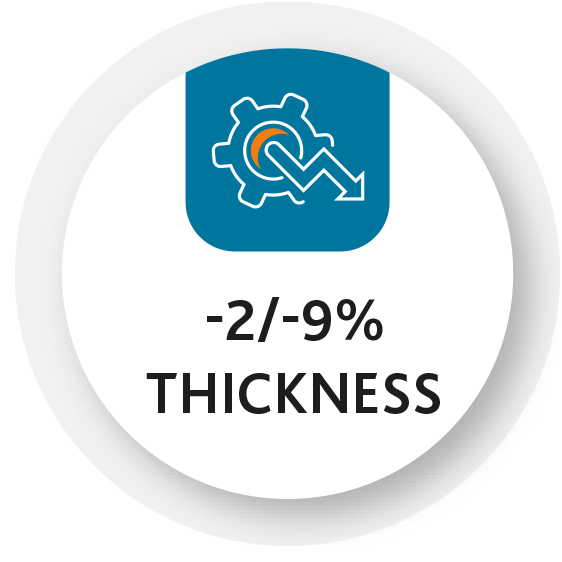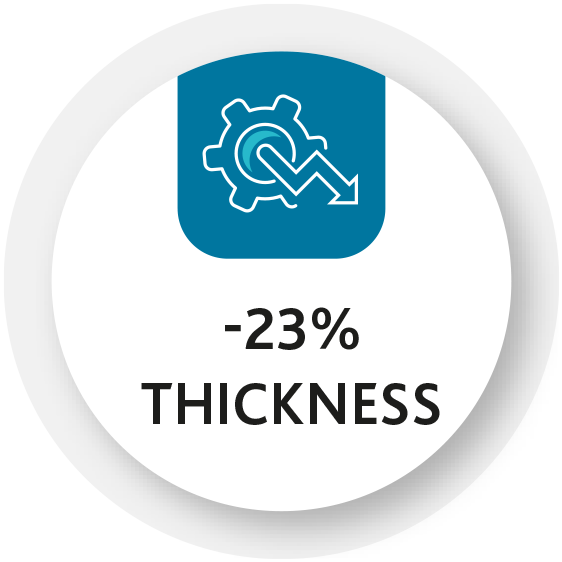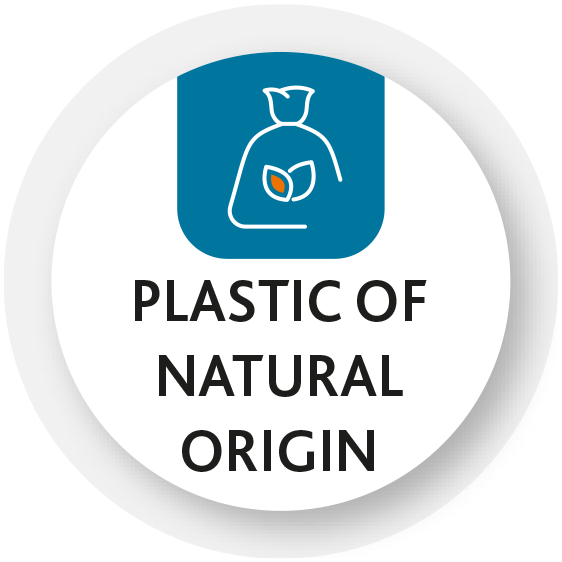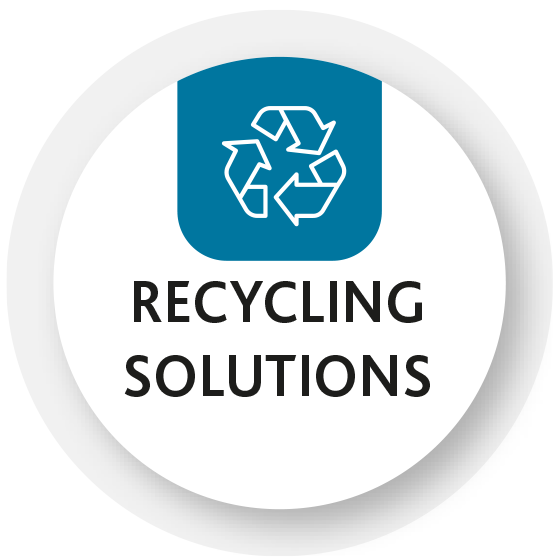Environmental management
Circular economy: Efficient use of raw materials and minimisation of waste
Developing more sustainable activity requires incorporating environmental criteria throughout the value chain that minimises the impact of our business activity caused by the transformation of raw materials by mechanical and chemical means that leads to the generation of waste.
Starting with the selection of raw materials, both the main ones (cellulose, collagen skins, abaca paper, polyamides and natural gas) and the auxiliary ones, and continuing with reduction of waste generation, optimising waste management and prioritising recovery or recycling above other systems such as destruction or disposal.
In the selection of raw materials we seek to reduce their environmental impact as much as possible.
To avoid deforestation and its impact on climate change, all our suppliers of pulp and abaca paper have certificates (PFEC or FSC) that ensure the sustainable management of trees and forests. In addition, our cellulose and fibrous casings are compostable, and economically viable alternatives are being sought to take advantage of their properties, both in obtaining glucose and their use as biogas.
More than 80% of our volume of casings is of natural origin (vegetable or animal), although within our portfolio there are also plastic casings of synthetic origin which represent an important technological challenge in the search for sustainable solutions
More than 80% of our volume of casings is of natural origin (vegetable or animal), although within our portfolio there are also plastic casings of synthetic origin which represent an important technological challenge in the search for sustainable solutions. In this line, we are working according to the 4R model (reduce, reuse, recycle, and repair) in plastics technology with different initiatives where the following achievements have been made:
Waste Management
![]() In 2019, the tons of waste decreased by 8.1% compared to 2018
In 2019, the tons of waste decreased by 8.1% compared to 2018
For the management of the waste generated in our production process, we use disposal methods that have been determined locally based on local regulations and good practices within the Group, taking into consideration the characteristics of the production process and the raw materials used.
In 2019, the tons of waste decreased by 8.1% compared to 2018. The production efficiencies achieved at Group level make it possible to compensate for the increased waste from the plant with new production technology in Cáseda, Spain, where new production modules were installed in 2019.
It should be noted that this new plant incorporates the latest technological developments in sustainability. These improvements not only translate into a reduction in residues owing to the lower amount of waste in the production process, but also into a reduction in CO2 per metre produced, and a reduction in discharges and gas emissions.
| 2019 | 2018 | 2017 | |
| TOTAL waste in tonnes (tn.) | 49.307 | 53.423 | 46.498 |
| Waste in tn./ Metres produced. Base 100. Year 2016 | 110 | 119 | 104 |
| 2019 | 2018 | 2017 | ||||||||||
| breakdown of waste and by-product | Non-hazardous | Hazardous | TOTAL | Non-hazardous | Hazardous | TOTAL | Non-hazardous | Hazardous | TOTAL | |||
| Reused | 5,9% | 0,0% | 5,9% | 0,1% | 6,3% | 6,4% | 0,1% | 16,0% | 16,1% | |||
| Recycled | 7,8% | 2,5% | 10,3% | 7,6% | 5,6% | 13,2% | 11,7% | 0,1% | 11,7% | |||
| Composted | 27,8% | 0,0% | 27,8% | 26,3% | 0,0% | 26,3% | 27,0% | 0,1% | 27,1% | |||
| Recovered | 1,8% | 0,2% | 2,0% | 2,2% | 0,2% | 2,3% | 0,5% | 0,2% | 0,6% | |||
| Incinerated | 7,7% | 0,2% | 7,9% | 7,0% | 0,5% | 7,5% | 7,2% | 0,2% | 7,4% | |||
| Landfill | 36,6% | 1,3% | 37,9% | 37,6% | 1,2% | 38,8% | 33,2% | 2,1% | 35,3% | |||
| Other | 1,6% | 6,5% | 8,2% | 1,2% | 4,3% | 5,5% | 0,1% | 1,6% | 1,7% | |||
| TOTAL | 89,2% | 10,8% | 100,0% | 81,9% | 18,1% | 100,0% | 79,7% | 20,3% | 100,0% | |||
Responsible management. Prevention of spills
The Viscofan Group has implemented an environmental management system with a view to preventing spills and leaks, in which it has established management mechanisms and technical control elements. Should they occur, this system has detection, reporting and anomaly correction methods, including ones for predictive purposes.
There were no spills or leaks at Viscofan Group facilities in 2019 that had to be reported to the competent authorities, understood as those that cause damage to the external environment of the facility and must be reported to the corresponding administration.
Contribution to SDG.12 Responsible consumption and production
In order to contribute to the SDG 12. Responsible production and consumption, the Viscofan Group’s Sustainability Action Plan aims to reduce the ratio of tonnes of waste managed in landfill to the millions of metres of extruded casings, which has been linked to the long term incentive plan for executive directors, managers and key personnel.
Based on the figure of 1.27, the proposal is to apply 30% to the weighting ratio if a minimum reduction of the indicator by 4 percentage points is achieved and increase the weighting ratio up to 100% if the indicator is reduced to 10 percentage points in the Measurement Period.




